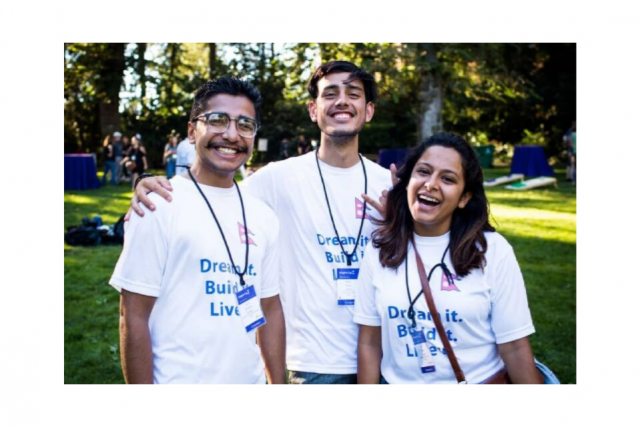Sochware is an Information Technology company that strives to fill the gap between technology and agriculture. It is an innovative initiation of young entrepreneurs of Nepal to uplift the traditional agricultural practices of the country by means of Artificial Intelligence. Following is the conversation with Milan Thapa, the young co-founder and Chief Technology Officer at Software.
- What is the social problem that you are trying to solve, and how do your products help to solve these social problems?
Sochware is a platform that provides services to Nepali farmers. We use the Internet of Things and Artificial Intelligence based programs to tackle various anomalies that can occur in traditional agricultural practices. We seek to enrich the agriculture sector of Nepal by using these modern technologies. With our technology, we aim to solve the problems in the agriculture sector and uplift the agriculture practices from the traditional way to technology-based ways.
We have two prototypes called “Mushroomation”, and “E-Agrovett”. Mushroomation is a closed boundary farming automation system based on the Internet of Things. It allows farmers to grow closed boundary farm like mushrooms, potato, tomato easily by automatically controlling the water level, humidity, moisture, and temperature. Similarly, our device timely detects and alerts the farmers about any diseases that might affect their farm through image processing. It also signals farmers when the vegetables are ready and ripened. All of this saves the farmers the time to focus on the business rather than worry about the farm.
Similarly, “E- Agrovet” is a mobile-based application based on Artificial Intelligence. This application is well furnished to identify diseases of the plant through clicking photos in real time. Its basic function is to process images to identify diseases through the help of Artificial Intelligence and sends details about it to the farmers including report about the disease and also mitigating methods. Furthermore, it connects farmers to experts who can give advice regarding treatment.
- Who are the target customers of your products?
We have a B2C model where our primary customers are farmers. Our products are affordable for farmers and we personally help to make them familiar with the technology. We not only target farmers but all the individuals who grow fruits or vegetables on their home.
Another customer segment includes our B2B customers that include Agrovets. Agrovet is a person who provides end-to-end support for farmers on supply store, dealing in seed, fertilizer, etc. We provide a portal through which these businesses can connect with farmers and provide them the necessary natural or chemical based solutions to cure crop affecting diseases.

- What has been the journey of Sochware so far?
Our entrepreneurial journey started in 2017 when I met my co-founders Eeda Rijal and Sishir Shrestha who were Microsoft Student Partner (College Ambassadors) like myself. After sharing a similar vision, we started SochWare to solve the problems in agriculture through technology. Similarly, we attended many seminars, competitions, and also a mini MBA course called Pre-Acceleration programs to learn how to run a business and turn our ideas into reality.
In 2017, we also applied for Microsoft Imagine Cup with our product concept ‘Mushroomation’ and became the top five national finalists. We applied again in 2018 with the idea of E-Agrovet and, luckily this time became the national winners. We competed in Malaysia for the regionals and became South East Asia (SEA) winner also got selected to compete globally in the US and became the winner for Artificial Intelligence competing 49 different teams all over the world top universities like Harvard, Stanford, MIT.
- What were the challenges that you faced as an entrepreneur and how did you overcome them?
The first challenge that we faced was the lack of expertise in Artificial Intelligence and Machine Learning in Nepal. We did not have proper guidance and that also exposed us to a lot of challenges. Initially, even the National Agriculture Research Center was not ready to approve our technology, where they highly doubted that a technology like ours could solve the problems like detecting plant diseases. However, we gradually explained to them how Artificial Intelligence works and sampled them our work. Finally, they believed in us and agreed to verify and support us!
Like any other startups, we also faced a major challenge in terms of funding. Similarly, the Government was not flexible and we had major difficulties registering our company. The Company act is not supportive enough for tech companies and we still have to face major challenges and threats due to weak copyright and intellectual property rights. When we returned from the US, we applied to get a trademark for our company but were asked to come back a year later in which time our idea could have been easily copied.
- How many employees are working with you currently?
We’re actually almost 20-25 people including mentors and interns. Our staff includes Full-stack developer, Project Managers, Researchers and Media managers who already have years of expertise in their field.
- What is the Legal structure of your company? What were your different sources of investment to begin this company?
We registered our company in 2017 as a private limited company. Initially, three of us injected personal earnings into the company. I was personally working in three different companies and our personal funds like pocket money, some portion of salaries help to solve the financial barriers of Sochware. We also took some personal loans, however, the major source of investment came from the Imagine Cup which won us almost 15000 USD in cash and 10000 USD in Azure grants which helped us to build our prototype. We also injected investment into Sochware through other in-house and client-based projects that we were running at that time to sustain our AI and IoT projects.
As per now, the company itself is generating revenue, and we are investing that revenue back into the business.
- What are the future plans for your company?
Currently talking about E-Agrovet, we are working not only for its development but also on its reliability and accuracy where result till date is having 84% of validation and 96% of accuracy based on our available huge datasets to detect the diseases that were analyzed through Artificial Intelligence. So, we are aiming to increase our validation to 95% to roll out into the packet for production and real-time use for farmers. Currently, we are working on three different major crops i.e. potatoes, tomatoes, and maize where within 3-6 months we are planning to add 16 more crops.
We also want to set up a research lab in Kathmandu so that every student gets access to lab and research, and are provided with maker’s space. Eventually, we want to become the number one AI and IOT based company in Nepal.
- What is the market potential and scalability for your products and how do you earn revenue?
Although our primary targets are farmers, we have focused our business model on different tier including different clients as well, like data companies, Agrovets, agro-pharmaceuticals who have greater marginal propensity to spend.
We also work on a subscription basis where we charge minimal subscription like $5/ year for our services which they can easily afford. We also provide a month of trial service along with flexible packages that the farmers can use as per their needs.
Similarly, our other sources of revenue come from advertisements that we place in our platforms for agro-pharmaceuticals. Furthermore, we also earn revenue through data compliance with research companies.
Currently, we are working with 17 different farmers from different backgrounds in 3 different geographical locations, and we plan to break even our revenue in 3 and a half years. In order to ensure that the technology is well adapted, our application is based on infographics and has language options with audio assistance. We also provide training to our farmers through our representatives. So, the potential seems positive of reaching out to the greater market.
- What are your current needs as a company?
We want to call ourselves as learners, so we are always looking for mentorship and helping hands. We are also looking for excellent human resource team, so we are always looking for enthusiastic learners who are willing to join us.
- Is there any way you have been able to measure the impact of your business?
We have been able to measure the impact through data collected by our devices. We also have collected vital information on impact on social media marketing and consumer surveys.
- Do you consider yourself as a social entrepreneur?
Yes, there is one major difference between a social entrepreneur and a businessman. A businessman invents to sell whereas a social entrepreneur innovates to create impact. We are developing our business, but we are doing so while contributing for agriculture and tech society.
If you’re looking to connect with this brilliant company, then visit their website Sochware or email them at aryan@sochware.com.
Originally published on blincventures.com







